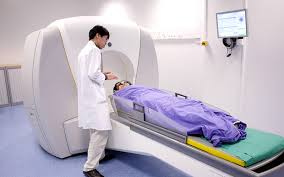Interpersonal therapy techniques

Interpersonal therapy techniques that solves all addiction worries
Interpersonal therapy techniques: Individual different circumstances
When opting for the ITP (interpersonal therapy) it is important to note that all the therapy sessions will differ according to the individual circumstances, nonetheless, doctor Dalal Akoury, MD registers that there are certain techniques that can be very useful with interpersonal therapy. Some of these techniques may include:
Emotions Identification – For some of us, accurately identifying the emotion we’re feeling can be difficult. An interpersonal therapist will look to help you identify emotions from an unbiased perspective.
Expression of emotion – This involves helping you to express your emotions in a more healthy way.
Dealing with issues from the past – Sometimes relationships you had in the past can affect the way you interact in the present. Part of your therapy may involve looking into your past to see if any patterns have formed.
Areas of strength of IPT therapy
As had been indicated in our previous discussions, interpersonal therapy deals primarily with the way we interact with people around us. Therefore doctor Akoury registers with us that the following are some types of concerns that are normally addressed within IPT therapy:
Such disputes can occur in a variety of settings, including family, social, marital, school or work place disputes. Normally they arise from differing expectations of a certain situation. If these types of conflicts cause significant distress, they are worth addressing within therapy.
This refers to a change in circumstance, whether this is due to job change at work, a change in relationship status or a life event that requires you to adapt. These changes can be experienced as losses, leading to depression or anxiety.
Losing a loved one comes with many challenges are readjustments. The feelings of grief and loss are entirely natural. However in the event that the duration of grief is delayed or considered to last beyond the ‘normal’ time for bereavement, this can be a serious topic of discussion during therapy.
Interpersonal therapy techniques: Interpersonal therapy for depression
Recommended by the NHS and the National Institute for Health and Care Excellence (NICE) interpersonal therapy is considered especially useful for those with depression. Studies suggest that a course of interpersonal therapy can be at least as effective as short-term treatment with antidepressants.
Finally and quite originally interpersonal therapy was developed to help adults with depression, but it has also been shown to be effective in treating depression in adolescents and children. As depression is typically a recurring condition, those affected are advised to supplement their interpersonal therapy with an ongoing form of maintenance. This means that alongside your interpersonal therapy sessions, you may be invited to ongoing monthly sessions to reinforce adjustments learnt in IPT therapy. Therefore it will benefits you most to continually consult with doctor Akoury from time to time in all matters of great concerns in this treatment approach.
Interpersonal therapy techniques: Individual different circumstances
http://www.integrativeaddictionconference.com/wp-admin


